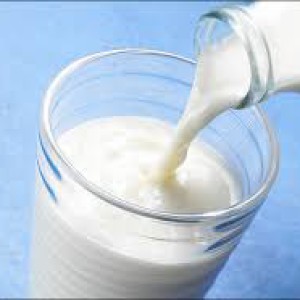
Posted: Wednesday, March 16, 2016 7:00 am
I love to write articles with wonderful messages and happy endings, but this article might be a little different. What I have to say will help educate us all about the potentially dangerous ingredients in our food. We consume these foods every day and encourage our children and grandchildren to do the same. I believe the foods we eat can help to heal or they can cause harm.
As consumers, we have the task of evaluating the research or consulting a health professional, then make the best choice we can. So here we go with some facts about the dairy industry.
I believe our source for dairy products has been compromised over the years. Many cows in the U.S. are injected with recombinant bovine growth hormone (rBGH). It is a synthetic hormone that is marketed to dairy farmers to increase milk production in cows. It stimulates a cow’s milk production by increasing lev-els of another hormone, known as insulin-like growth factor (IGF).
rBGH has been used in the U.S. since it was approved by the Food and Drug Administration (FDA) in 1993. Its use is not permitted in the Europe, Canada and some other countries. According to the American Cancer Society, this is cause for concern, due to the potential to cause cancer, but they are quick to say it has not been fully examined in humans.
I don’t know about you, but if the American Cancer Society is concerned then so am I. Also cows treated with rBGH tend to develop more udder infections. This requires antibiotics to be given to the cow and potentially filtered down to the end products. The long term effect of this would be humans building a resistance to antibiotics. Not good.
Now back to IGF. The hormone is stimulated in cows that have been injected with rBGH. According to the American Cancer Society, milk from rBGH-treated cows has higher levels of IGF-1, a hormone that normally helps some types of cells to grow. Several studies have indicated that IGF-1 levels at the high end of the normal range may influence the development of certain tumors. Some early studies found a relationship between blood levels of IGF-1 and the development of prostate, breast, colorectal and other related cancers, but later studies have failed to confirm these reports or have found weaker relationships. While there may be a link between IGF-1 blood levels and cancer, the exact nature of this link remains unclear.
Unfortunately, in many modern U.S. dairies, cows are milked about 300 days out of the year. During a portion of this time, the cows are pregnant and have a higher level of estrogen in their bodies. This could account for the higher levels of estrogen in some milk. Sadly, it sometimes seems that the desire to produce higher volumes of milk takes priority over producing a product that is as natural and healthy as possible. This is not always the case, but in some instances it truly is, so all I can say is buyers beware and, err to the side of caution.
Look for dairy that is labeled rBST free. If you cannot find it at your local grocer, ask for it. Milk is a wonderful healthy addition to our food sources, and I would never suggest deleting it from your diet. We need it for the calcium and Vitamin D it provides as well as other healing, healthy ingredients. So enjoy your dairy in moderation but keep in mind all milk is not the same — the way a cow is raised could deter-mine if the end product is promoting health or exposing us to potential health hazards.
The American Cancer Society has no formal position regarding rBGH.
For more information, visit https://www.cancer.org/cancer/cancercauses/othercarcinogens/athome/recombinant-bovine-growth-hormone
See you in the gym!
Linda Stollings is owner of fitPrescriptions, a Corporate Wellness Health Coaching Company. Email her at lstollings@fitprescriptions.com.






